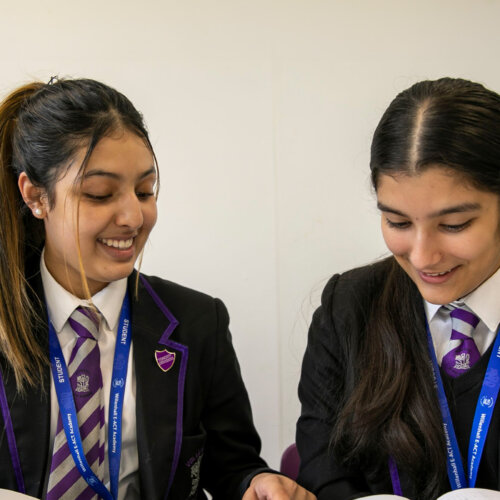Books have the power to transport us to new worlds but, much like breakfasts, not every child has access to them at home.
From 2021-2023, we were delighted to work with Macmillan Children’s Books, enabling them to distribute a quarter of a million books from the Marcus Rashford Book Club to Magic Breakfast partner schools across the country.
Children at our partner schools were able to take home their own copies of ‘A Dinosaur Ate My Sister’ by Pooja Puri, ‘Silas and the Marvellous Misfits’ by Tom Percival, ‘The 13-Storey Treehouse’ by Andy Griffiths and Terry Denton, and Alex Falase-Koya and Marcus Rashford’s own books, ‘The Breakfast Club Adventures: The Beast Beyond the Fence’ and ‘The Breakfast Club Adventures – The Ghoul in the School’.
Together, we provided breakfasts that fuel and books that inspire to children across the country.

For too long, the joy of reading has been restricted by whether or not a family has the contingency budget to purchase books. The children who often miss out are those on Free School Meals and users of Breakfast Clubs, who more than likely need fiction, and non-fiction, to escape reality from time to time. We haven’t been affording these children the option of reading for fun. I’m really happy to be partnering with Magic Breakfast to get our books in the hands of children that need them most.“
Marcus Rashford MBE

Reading resources
In the past, BBC Teach, the National Literacy Trust, and Macmillan’s Children’s Books have produced resources to accompany the books. Why not have a looks through and see if they inspire any activity around Marcus’ recommended reads.
-

Silas and the Marvellous Misfits: Teacher resource guide
-

Silas and the Marvellous Misfits: Children’s activity pack
-

A Dinosaur Ate My Sister: Children’s activity pack
-

The Breakfast Club Adventures: Teacher’s resource guide
-

The Breakfast Club Adventures: Children’s activity pack
-

The 13-Storey Treehouse: Teacher’s resource guide






